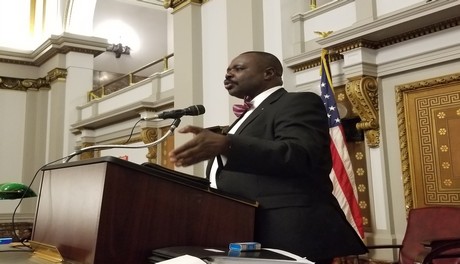
Deputy Speaker Jacob Oulanyah has asked the American administration to abandon the ‘America first’ mantra, saying it is frustrating trade and commerce with African countries.
At a conference dubbed “Reset America, Reset Africa 2018” in St Louis Missouri, Oulanyah said countries should use legislation and policy making to enhance and not hinder trade.
“We [should] use the process of legislation, policy making and budgeting to focus on trade, but how can we talk about this when you have a campaign of America first without helping other countries,” said Oulanyah.
Oulanyah, whose keynote address centered on using legislation and policy making to ease commerce and trade, said trade only occurs where there’s mutual benefit for all parties involved.
He said countries should focus on breaking barriers like transport, accommodation and protectionism to open space for trade.
During the US 2016 elections campaign, President Donald Trump rode on the wave of protectionism and coined the controversial ‘America first’ slogan, saying the country will take care of its own interests during his administration.
President Trump would later pull out of major trade and climate change deals, including locking out Rwanda in trade over the latter’s banning importation of second hand clothes from the United States of America.
Oulanyah now says all barriers to trade and commerce are a threat to all, including the United States of America, and that instead of mounting more barriers, legislation should seek to break the existing ones.
“The laws and policies that we make can render these trade barriers meaningless, can make distances something of the past,” said Oulanyah.
Oulanyah on Saturday wrapped up his USA tour, which saw him, among others, discuss student exchange programs with universities in Missouri, among addressing several audiences on international trade, governance.
A United States government website put the trade portfolio with Sub Saharan Africa at $37 billion as of 2015, although experts warn of a decline in the wake of the US inward looking foreign policy.
